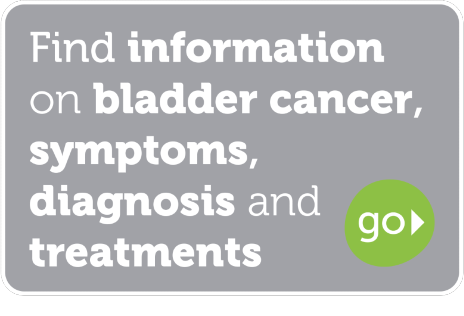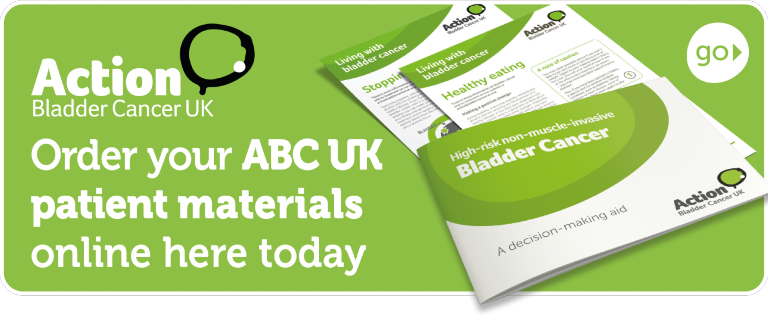Caroline's Story
We are very grateful to everyone who has shared their story with us on this website. We know that many people find reading the story of other patients very helpful when trying to make sense of their diagnosis or cancer journey. We also know that these stories can be very powerful in helping to raise awareness of bladder cancer and highlight the urgent need for new treatments, research and support for those with bladder cancer.
If you would like to tell your story please do get in touch with us by email at group@actionbladdercanceruk.org
We can arrange for one of our Patient Support Officers to get in touch to help you tell your story, if that would be helpful, and we also have a 'hints and tips' sheet to give you more ideas about what to write.

Caroline Raw, 51, was diagnosed with bladder cancer after noticing small amounts of blood in her urine. Caroline has two grown-up children and now helps care for her partner Jonny’s teenage son, tells her story:
I first noticed something in the middle of May this year. There were two tiny spots of blood, the size of a pin head, on the paper. I’d had an operation to remove the lining of my womb two years before, so I just thought it might be related to that and didn’t think anything more of it.
A couple of weeks later, when I was out with friends during the Bank Holiday weekend, I went to the toilet and noticed blood on the paper again, along with a streak of blood in my urine.
I went to see my doctor straight away and gave a urine sample so that it could be tested for blood, but it came back clear. I was also given a physical examination, but my doctor told me that the symptoms were probably related to my operation and I was asked to monitor my symptoms for three months to see if they formed a pattern.
Just two days later, I noticed blood again, so I went back to the practice and saw another doctor. A second urine sample came back clear, so I was asked to monitor my symptoms for a month. Over the next four weeks I noticed very small amounts of blood on two occasions but when I returned to my doctors, a third urine sample again showed no sign of blood.
In the meantime, I was referred to a gynaecologist through private healthcare. I was sent for an ultrasound and it was then that an abnormal growth on the lining of my bladder, known as a polyp, was discovered. I do think that if I hadn’t been persistent with my worries I may have been diagnosed at a much later stage and the cancer could have been more difficult to treat.
Following a cystoscopy – a medical procedure that uses a light and camera attached to a thin fibre optic tube that is inserted into the body to examine the bladder – and CT scan, doctors confirmed that the growth was cancerous. I underwent a procedure known as a transurethral resection of a bladder tumour (TURBT) to remove the polyp in August.
My consultant originally told me he believed it was a very early stage cancer but when the results came back after the TURBT I was told it was grade 3 and aggressive. I was devastated. Jonny had gone away for the weekend as we’d been told all along that it was nothing to worry about.
We were really shocked. I had none of the risk factors. I’d never smoked or drank excessively, I’d always eaten healthily and I wasn’t overweight. I’d also never worked with chemicals, which is one of the known causes of bladder cancer.
I was seen by bladder cancer specialist Mr Sunjay Jain, who told me that I had ‘high risk’ non-muscle-invasive bladder cancer. I was given a choice of two further treatment options – bladder removal, called a radical cystectomy, or a three year course of an immunotherapy drug called BCG. I chose to have my bladder removed, and the operation was carried out at the end of September.
I didn’t think I could stand the anxiety of having treatment for three years and not knowing if it was working. I wouldn’t have been able to move on, I’d always be wondering what was happening inside me. I just thought ‘let’s get rid of it and move on.’ I told the doctors I intend to live until I’m in my 90s – I’m not going anywhere, so do whatever you need to do to make me better.
I was one of the first patients to undergo pioneering robotic surgery led by consultant surgeons Sanjeev Kotwal and Stephen Prescott at St James’s University Hospital, Leeds and stayed in hospital just four nights.
As well as having my bladder removed, I underwent a urostomy, a procedure that means my urine is now drained via an artificial opening called a stoma, which is connected to a bag on the outside of my body.
The surgeons also performed a radical hysterectomy, which involved removing my womb, cervix, fallopian tubes and ovaries, to help minimise the chance of the cancer returning. This meant that I experienced early menopause, and part of my recovery has been learning to cope with symptoms including hot flushes, night sweats and mood changes.
Having the bag is nothing like as bad as I thought it might be. It’s been the least of my worries. It just takes a bit of getting used to. It took me a while to find bags that didn’t show through my clothes, but I’m now back in my skinny jeans and I’m determined that it won’t stop me from doing anything I want to.
I think more consideration should be given to women who have had their bladders removed – everything seems to be aimed at men, who find it easier to cover up their bags. Women don’t want to feel they can’t wear the same clothes as they did before.
During this time I was also putting the final touches of my wedding to Johnny together, which actually was hugely motivational. I kept saying to everyone that I was getting married in April and I needed to be ready – that no matter what I would be walking down the aisle. The only downside was that I’d already bought my wedding dress and I knew I might need a different one to hide my bag, but I was ready to deal with that.
My dad has also been hugely inspirational to me. He’s 79 and has been living with Parkinson’s disease for a few years now, but it doesn’t stop him from doing anything. There’s no point in being miserable. Life’s too short. I always think that there are people who have to deal with much worse things. As a family, we just have a laugh about it and make jokes. We don’t get upset.
I also joined a bladder cancer support group funded by the charities Yorkshire Cancer Research and Action Bladder Cancer UK, as I’m keen to raise awareness of symptoms among women and encourage them to trust their instincts if they think something is wrong.
As a woman, you get used to bleeding. I hadn’t had any pain and I didn’t lose weight. Everything else was normal. So many women, particularly my age, would have done nothing. They would have taken the doctor’s advice and left it three months to see if there was a pattern. That’s what you want to be told so you believe it. I want to tell women not to accept symptoms as gynaecological. The chances are that it won’t be cancer, but if you can catch it early, it can be treated more easily. Cancer is scary, but the thought of getting it is probably more scary than dealing with it.
How we help you
Latest News / Events
Understanding Bladder Cancer: Nurses' Education Event: 05 September 2025 11/04/2025
BOOKING HAS NOW OPENED for the annual major ABC UK Nurses' Education Day. Friday 5 September in Birmingham Register for your place here: Understanding Bladder Cancer and the Latest Developments Tickets, Fri 5 Sep 2025 at 09:00 | Eventbrite Full programme ...











